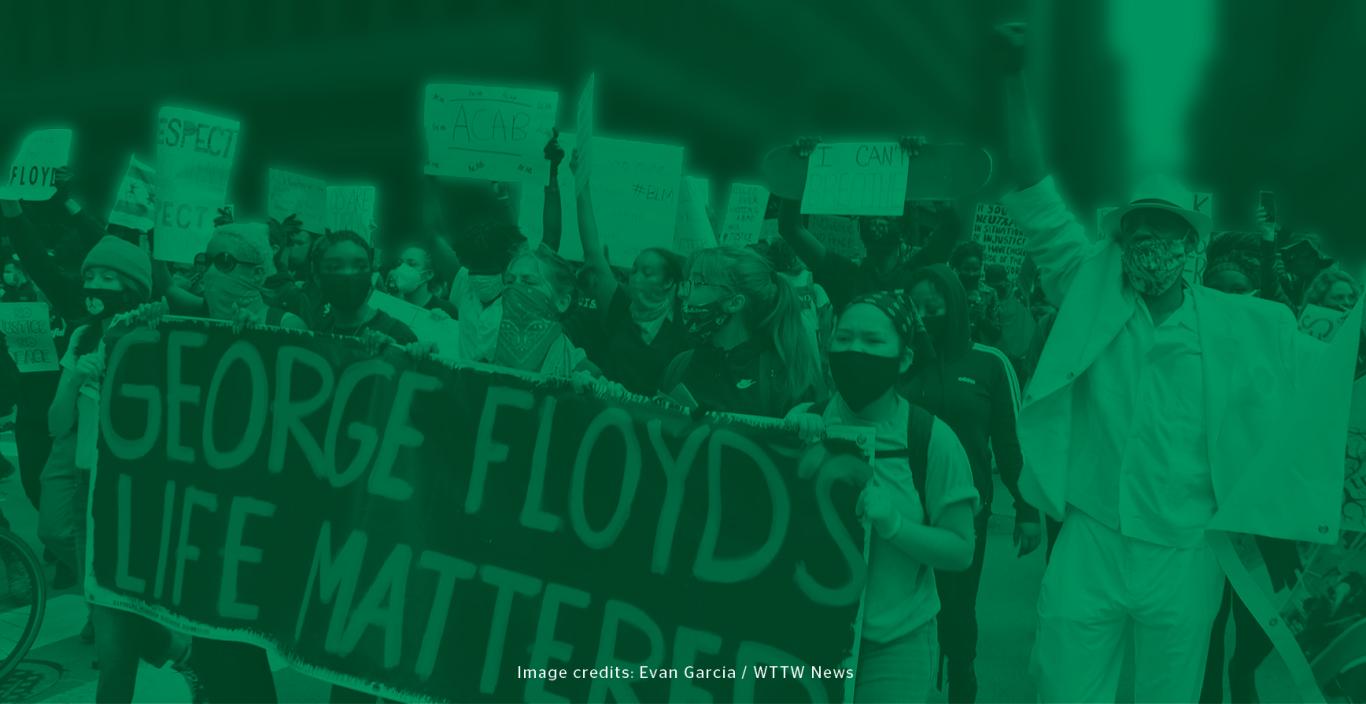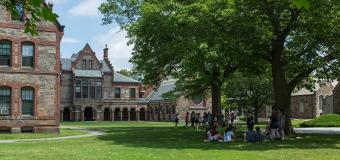The battle against systemic racism — and, frankly, white supremacy — has many fronts, and Lesley University is no exception.
In the wake of weeks of local and national Black Lives Matter protests in response to the homicide by suffocation of George Floyd by Minneapolis, Minnesota, police officers, just the latest high-profile case of black and brown Americans being targeted and killed by agents of the state, members of our Diversity Council, Bias Education Response Team, university deans, the Counseling Center, the Dean of Students office, the Office of the President, and the Office of Communications and Marketing last week issued a “call to action” for the entire university.
“As we know, the pouring out in our communities is not just an outrage against what happened to George Floyd, but about the day to day ongoing indignations and acts of violence against people, based on the color of their skin, particularly black people,” read a June 3 community-wide email from Maritsa Barros, associate diversity officer and executive director of the Urban Scholars Initiative. “It is a call to act to dismantle racism at all levels; individual, systemic, and structural. We call out to you, to move into action with us as a collective to work towards change in creating a better Lesley that lives up to its mission in words and in action.”
As a first step, the call to action involved the organization of a two-hour long, university-wide Accountability Forum via the Zoom platform designed to discuss, “What does accountability look like at Lesley University, and in (each participant’s) department, specifically?”
Nearly 400 community members — students, staff, faculty and administrators — took part in the forum, which included a number of smaller breakout groups to spur candid and helpful discussion.
After the forum, Barros explained the event’s structure, a Zoom gathering of all participants and the breakout rooms, forgoing — for now — a standard questions-and-answers period. She said that, in the midst of the pandemic and continued attacks against black and brown people in America, the university also lost its chief diversity officer (Lilu Barbosa, who accepted a position at Harvard University).
“In an attempt to reposition and further ingrain Diversity, Equity & Inclusion (DEI) practices within the structures of the institution, it was critical to hold a space to give voice to the needs of the community,” Barros said.
A number of common themes emerged from the forum:
- The need to fully fund the Division of Diversity, Equity & Inclusion and institutionalize its standards and best practices
- Creation and support of an environment for true collaboration between administrative and academic leadership, and community members with a large amount of responsibility but without corresponding authority
- Restructured hiring practices and institution requirements to attract and retain faculty and administrators of color
- Provide resources and opportunities for learning and development for all community members on an on-going basis
- Deliberate, standardized infusion of social-justice content and norms into the curriculum
- Transparency in decision-making
Another important step in fostering accountability is to acknowledge the problem, and its roots.
Rising Diversity Council Chair Deborah Spragg, director of field training in Expressive Therapies, pointed out at the beginning of the forum that oppression of people of color has beset America since the first white settlers’ genocidal practices toward the indigenous people.
The forum also focused on the white-supremacist policies, in addition to decades of police brutality, of “redlining” of cities, including Boston, where leaders in the mid-to-late-20th century deliberatively withheld development funding and support from minority neighborhoods, and the disparities in elementary and secondary schooling of white and non-white children.
Such policies, several participants pointed out, reinforces the wealth gap between blacks and whites, with black people statistically holding $5 to every $100 a white person possesses.
A subtler, but nefarious, example of systemic racism is seen in the “implicit bias” experienced by black and brown job candidates, as compared with identically qualified white candidates. That is, “black-sounding” names elicited fewer calls from hiring managers than names more frequently attached to white job-seekers. (A video outlining these injustices was illustrated by a comparison of “Kevin and Jamal.”)
Toward the forum’s end, Barros quoted from civil-rights leader Rev. Al Sharpton’s eulogy for Floyd, which began, “Ever since 401 years ago, the reason we could never be who we wanted and dreamed of being was because you kept your knee on our neck.”
Barros also sounded a hopeful note, thanking the participants from a multitude of university departments for participating in the forum, while underscoring the need for action. Her closing remarks echoed an earlier letter to the community, in which she wrote:
“I am moved by the collaborative nature in response to this call to action from our community at-large. There is power and strength in numbers, and together we are making the difference.”
President Janet Steinmayer participated in the forum and intentionally took notes in her breakout room to support the next steps in the process towards change, Barros said. She added that the Diversity Council will convene to review notes shared by the forum participants to assist in shaping the plan for implementation, and to strategize on the best model and structures to support the work of DEI at Lesley University.
The president and the council, Barros indicated, “look forward to our next outreach to the community, where we can engage in open and transparent dialogue at large.”


